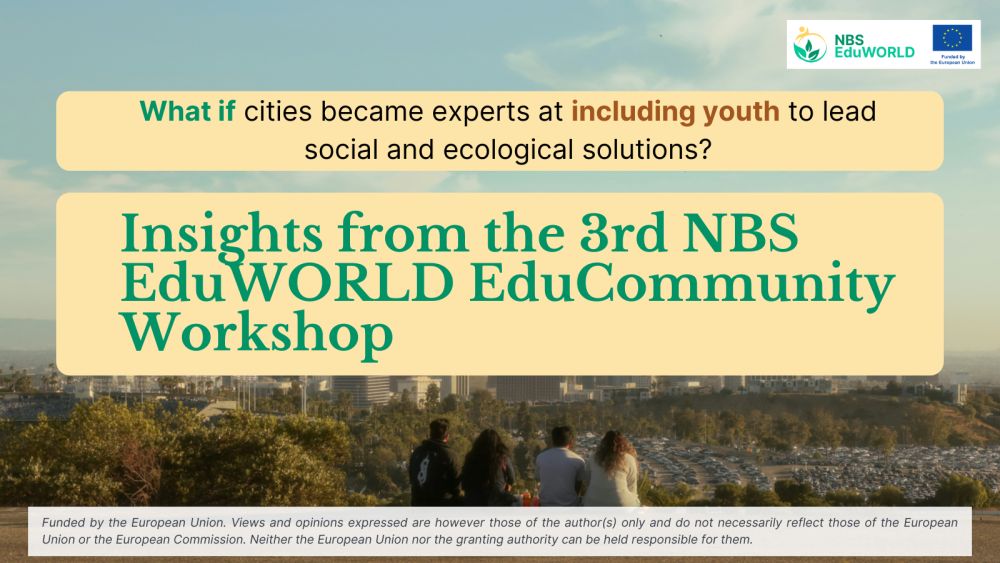
News
Youth Participation for a Sustainable Future: Insights from the Third NBS EduCommunity Workshop
10 March 2025
On 18 February 2025, educators, nature-based solutions (NBS) experts, local authorities and young people gathered at the third and last NBS EduCommunity Workshop to discuss innovative approaches to youth participation. The focus was on the Youth Inclusion Toolkit, which provides local authorities and other stakeholders with practical methods to actively involve young people in decision-making processes while promoting the integration of nature-based solutions.
Why a youth participation toolkit?
Young people have a key role to play in shaping a sustainable future, yet they are often not adequately involved in policy and planning processes. At the same time, many stakeholders face the challenge of developing effective participation formats. The toolkit therefore provides a structured collection of best practices and tools to help promote and sustain youth participation.
Insights from the breakout sessions
Interactive groups discussed different methods of youth participation. Each group focused on a specific tool:
- Hackathons: Hackathons provide creative spaces for young people to develop technological solutions to environmental challenges. However, an ongoing challenge is inequitable access to digital infrastructure, which could potentially exclude socially disadvantaged groups.
- Role play games: Role-playing allows young people to take on the perspectives of different stakeholders and immerse themselves in decision-making processes. This not only enhances their understanding of political dynamics, but also helps to constructively channel emotional responses to issues such as climate change.
- Youth councils: Youth councils allow young people to be directly involved in political processes. The aim is to establish youth councils as an integral part of the decision-making process and to ensure their long-term effectiveness.
- Board games: Board games provide an interactive way to make complex sustainability issues more tangible. Participants also discussed how to integrate digital components to increase the reach and appeal of this method.
- BioBlitz: This method raises awareness about biodiversity by actively involving young people in scientific observations. The vision for 2035 is that young people will regularly participate in such activities and thus actively contribute to environmental education.
The discussion highlighted the need to embed youth participation not only in the short term, but in a sustainable and long term way. The following measures were identified as crucial:
- Long-term structures that go beyond electoral cycles and allow for continuous dialogue.
- Interdisciplinary cooperation between local authorities, schools, universities and youth organisations.
- Low-threshold formats that reach all young people, regardless of their social or economic background.
The lessons learned at the workshop will now feed into the further development of the Youth Inclusion Toolkit to support local authorities and other stakeholders in implementing youth participation and NBS in a forward-looking and sustainable way. Join us online on 27 March 2025 for the Nature-Based Solutions (NBS) Education Summit, where educators, policymakers, and practitioners will explore the future of NBS education, share insights from key projects, and engage in policy learning workshops.
All news

Funded by the European Union. Views and opinions expressed are however those of the author(s) only and do not necessarily reflect those of the European Union or the European Commission. Neither the European Union nor the granting authority can be held responsible for them.
